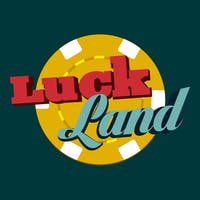Come Out and Point are the two stages of each round of Craps. The shooter performs one or more Come Out rolls to begin a round. Players lose their Pass Line wagers if the Come Out roll is 2, 3, or 12. This is called Craps, or to 'crap out'. Pass Line bets win if the Come Out roll is a 7 or 11 (a Natural). The shooter keeps making Come Out rolls until he gets a 4, 5, 6, 8, 9, or 10, which is the Point. The dealer then places an On button next to the point number, signaling the start of the round's second phase. If the shooter rolls the correct point number, wagers on the Pass Line win. The pass line loses and the round ends if the shooter rolls a 7 (a Seven-out).
The Come Out roll is the initial dice roll in a betting round, and it marks the start of a new game in online craps. A Come Out roll can only be made if the preceding shooter failed to make a winning roll, that is, if the previous shooter failed to make the Point or if the previous shooter made a Seven-out (rolls a seven).
The game then switches to a new Shooter. If the current shooter succeeds in making his Point, the dice are returned to him, and the next Come Out roll starts. Although theoretically, the Come Out roll indicates a new game of Craps is about to begin, it is a continuation of that shooter's roll.
When the shooter misses his or her Point, the dice are passed to the next player for a fresh Come Out roll, and the game proceeds as before. The next shooter will be the person immediately to the left of the previous shooter, and so on around the craps table in a clockwise direction.
Table Layout
The dice are rolled over the layout of the online Craps table. The layout is split into three sections, two on each side and one in the middle. Pass and Don't Pass line bets, Come and Don't Come bets, Odds bet, Place bets, and Field bets are all included in each side area, which is a mirror image of the opposite side. The Proposition bets are in the middle area, which is shared by both side regions.
When the Come Out roll is 7, 11, or 12, Pass bets win, whereas pass wagers lose when the Come Out roll is 2, 3, or 12. When the come out roll is 7 or 11, Don't bets lose but win when the come out roll is 2 or 3. When the Come Out roll is 12, Don't bets are tied.



